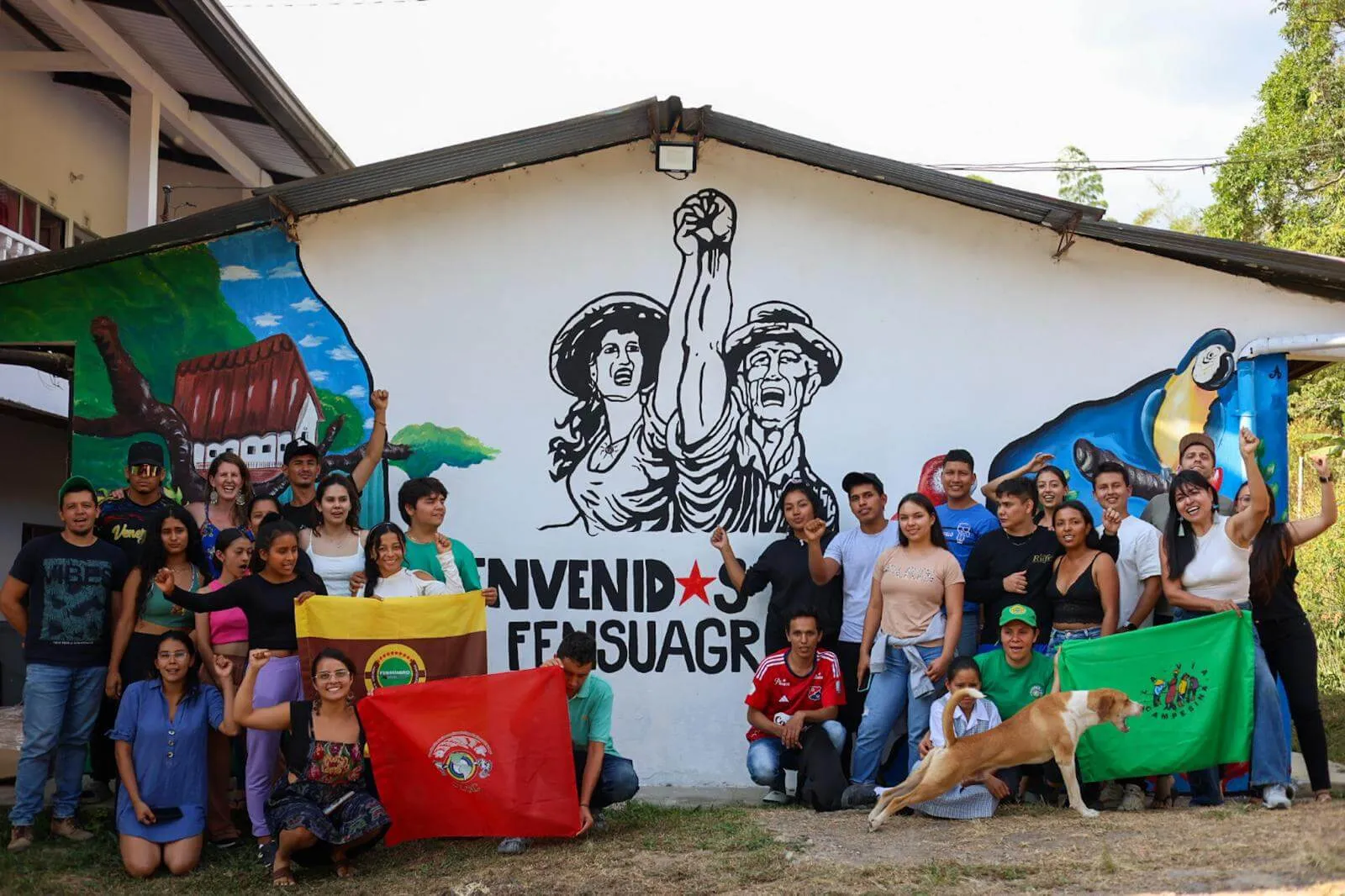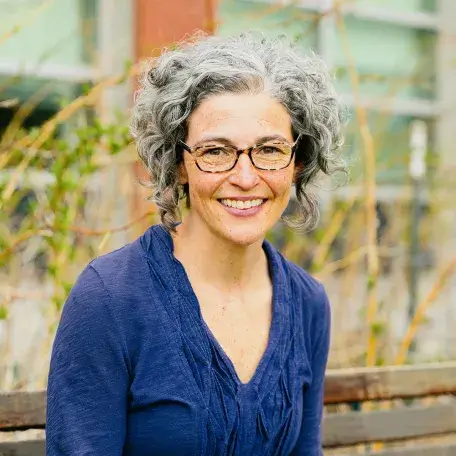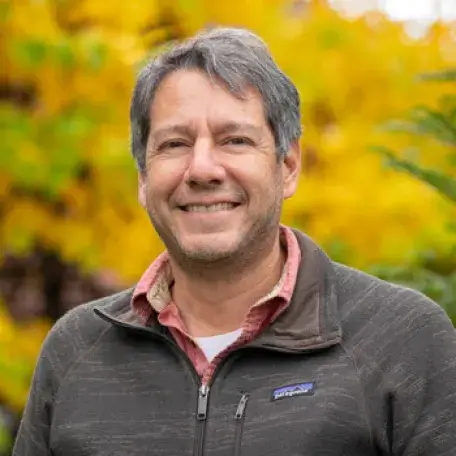Anchor Links
Overview | Topics | Media | Researchers | Publications
Overview
A Crucial Region Under Threat
A Crucial Region Under Threat
Despite its tiny land mass, Mesoamerica is a "hyperdiversity hotspot” with extraordinary biological and cultural richness. Under land use pressures caused by (neo)colonial value chains that impoverish peasant agriculture, capitalist offensives by transnational mining and agribusiness interests to grab land, and the loss of populations of native bees and other pollinators, native forests have retreated dramatically in recent decades and a “dry corridor” of desertification has taken hold of vast areas of Mesoamerica. As water scarcity and extreme weather challenge the stability of farming systems, young people are leaving behind a countryside that can only offer them industrial monocultures and decimated commons. In this context, 45 grassroots organizations in the region are working together in a massive, agroecological, learning-by-doing praxis of resilience-based organizing: the Agroecological Corridor.
This effort is nothing new, but rather the active remembering and recuperation of lineages and methodologies that originated in the region, such as liberation theology, farmer-to-farmer learning, action-reflection groups, and social movement training schools, with all of these oriented now to addressing the ecological crisis. The work centers on recovering the relationship between hydrology, forest ecosystems, and pollinator communities, with the restoration of cultures of caretaking, the respect for women’s autonomy, and the vitality of youth as mutually reinforcing, connective tissues in the defense of biodiversity and life itself in Mesoamerica.


Topics
Agroecology as a Tool for Social Change
Throughout Latin America, agroecology has become an approach for revitalizing territories, raising consciousness, building community, strengthening commitments, and weaving relationships of understanding, solidarity and humility. Agroecological social movements teach the technical aspects of agroecology blended with the fundamentals of organized struggle and the reinvigoration of peasant identity, based on the framework of food sovereignty. Mesoamerica was the cradle of farmer-to-farmer horizontal methods of knowledge mobilization in agroecology, as well as liberation theology and action-reflection circles. These powerful traditions come together with participatory action approaches to knowledge co-creation, forming a territorial fabric of dialogue among diverse, historically emergent ways of knowing the world.
Critical Pedagogy of Movement Schools
Our group explores how social movement education prepares young people, as well as adult learners, to take on roles and responsibilities that move agroecology forward, particularly at the community and territory level. We examine the pedagogical approaches, philosophy, methodologies, and spiritual practices at the heart of peasant-, indigenous- and farm worker-led political, ethical, social and ecological transformation.
With a focus on the network of La Vía Campesina and Latin American Coordination of Rural Organizations (CLOC) schools known as the Latin American Institutes of Agroecology (IALAs), as well as the territorial fabric being stitched together by the graduates of these schools, our participatory action research explores how training leads to transformation, through the work and lives of students, educators, graduates, and extended communities of praxis. The decentralization and expansion of this network of radical learning is planting a pedagogy of hope, in the midst of civilizational and planetary crisis.
Native Beekeepers Knowledge Network
Latin America is home to over 5,000 species of native bees, of which around 300 are eusocial bees that produce honey. Over the last 90 million years, these bees helped create the “most significant change in the history of the world,” that is, the landscape filled with flowering plants, fruits and vegetables that makes Earth’s surface so abundant with food. Prior to colonialism, indigenous peoples had deep, spiritual and material connections with bees, and beekeeping predates agriculture in many parts of Mesoamerica. Today, these bee species are endangered due to habitat loss, land use change, agrochemical use and the monoculture of Apis mellifera honey bees, even in agroecological farms. The loss of native pollinators has accelerated the loss of native forests and desertification. Anecdotal evidence suggests that where the introduction of non-native bees has been most pronounced is also where climates have most dramatically shifted toward permanent drought in recent decades.
The Mesoamerican Network of Native Beekeepers brings together peasant farmers, social movements, cooperatives, feminist organizations, and researchers to revive this ancestral practice, and pollinate the agroecology movement with a love for bees. A network approach and knowledge exchanges have become the essential methods for this vital work, almost completely overlooked by mainstream science and policy. Let us learn from the bees and work together like a hive!
Peasant Youth, Migration and Agroecological Safe Houses
Why are so many people migrating? How do people carry, protect, and transform their peasant knowledge and cultural identity with them when they relocate? Our group supports an understanding of the structural and subjective factors of migration in and out of cities, in and out of the countryside, and the role that agroecology plays in protecting human and social rights during processes of transition, displacement and re-rooting.
The agroecological corridor is a strategic construction of rural social movements to guarantee zones of life and safety that can reconnect people to land in multifaceted, cultural, personal, political, and spiritual ways. It leverages existing knowledge, relationships, and experiences to build infrastructure in support of networking, collaborating, strategizing, co-learning, and developing leadership within a broad network of organizations across the region. Weaving a multidimensional quilt of territories, ways of knowing and being, identity and resistance, the agroecological corridor is a world of many worlds, remembrance, sovereignty and renewal.
Media

Researchers
Research Affiliate • Ph.D. Student in Transdisciplinary Leadership, Creativity and Sustainability • Gund Graduate Fellow
martha.caswell@uvm.eduPartner Researchers
Publications
Publications
Mediated territoriality: rural workers and the efforts to scale out agroecology in Nicaragua. Nils McCune, Peter M. Rosset, Tania Cruz Salazar, Antonio Saldívar Moreno & Helda Morales (2017) Mediated territoriality: rural workers and the efforts to scale out agroecology in Nicaragua, The Journal of Peasant Studies, 44:2, 354-376, DOI: 10.1080/03066150.2016.1233868 | Download PDF


